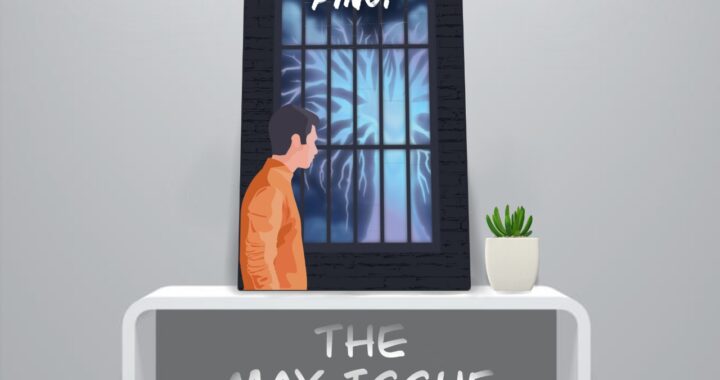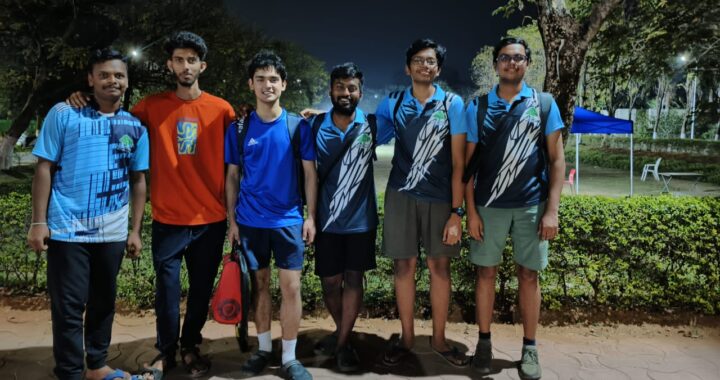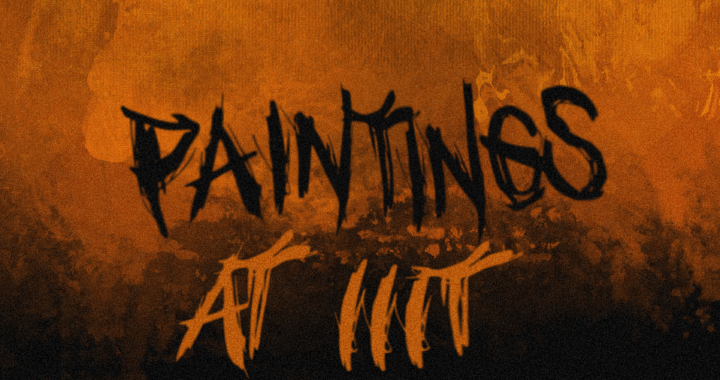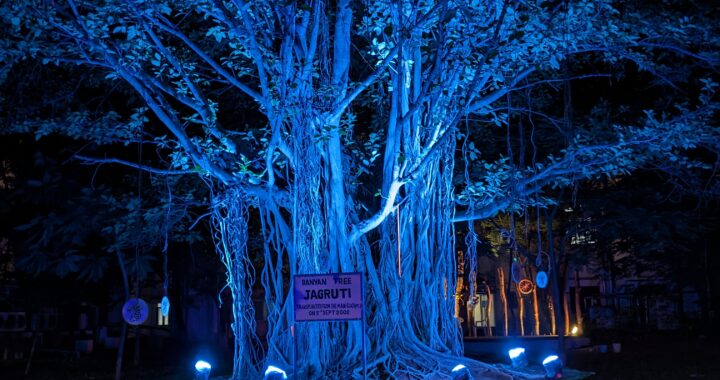Editorial – March 2020

The untimely pause due to the COVID-19 pandemic in the middle of this semester is a one-of-a-kind event in an Institution such as ours, but one that shall likely be forgotten with the graduation of the next few batches. As seniors – which is to mean anyone who has been on campus for a year – we tend to not pass on ‘non-useful’ nuggets of information to the batches that come after us – knowledge of unusual rules, of motivations for student bodies, of a marquee event – memory of which would otherwise be expected to last through the years. It is an environment in which in the students’ minds there can be no legacy, there can be no “urban legend” of alumni heroics, of unfortunate tragedy. Whatever may happen is destined to be restricted to only the present students at any time, bound not only spatially but temporally as well.
But not all is lost to time. People write, they draw, they blog, in expression of some abstract concept: and in this expression one can glean information of their surroundings. One may directly write of a lax attendance policy, but one may also speak casually of “skipping classes to give some contest”. A blog may criticise newly instated network admins, revealing the level of trust placed in students at any point in time. A frustrated writer might complain of difficulties they face in raising a legitimate issue, thus offering insight into a heavily bureaucratic administration. And this issue’s cover article deals with exactly that: salvaging some history from the written records of past times. For ten years now, Ping! has been connecting IIITians to what’s important in their lives. What started 10 years ago as the realization of a few students’ efforts to showcase the literary talents of the community has now become the embodiment of student dissent and creative expression. Hence, it was inevitable that at this point we look back at our roots so that it gives us a better understanding of our vision for the future – and at some point, it became a project to find out more about the Institute and its quirks, explored through these texts. To that effect, Zubair Abid, our current Editor-in-Chief teamed up with Neelesh Agrawal, our ex Editor-in-Chief to see: how it was, how it is, and how it should be.
It is not, of course, just the cover that counts. Scattered over this publication are accounts of regular campus life that may serve a similar purpose in the future. We talk of problems with Aarogya, while other pieces articulate on issues surrounding general Gender Awareness on campus. Yet others take a more light-hearted tone, taking a deep pictographic dive into the world of creepy-crawlies on campus.
At the end of it all Ping! remains both a representation of campus sentiments and a creative outlet.
Matters may yet not find coverage in the general proceedings of the magazine, be it due to constraints of time, space, or manpower (hint: it’s not the second one). And so, we present a summary of sorts, of prominent events that we were regrettably unable to cover in finer detail.
Mental Health Forum
The issue of mental health has been discussed in breadth and in-depth and never was there a debate on the need of some form of mental support for students in this college. It was not the first time the college had made efforts in this general direction but the resources available were simply not being used. Unsurprisingly, a majority of the campus is oblivious of the existence of three counsellors on campus. Even those that are have shared concerns about their effectiveness, furthering the idea that IIIT is ill-equipped to handle mental health issues. One generally agreed-upon reason for the same was that students shied away from approaching the counsellors because of the social stigma associated with mental illness. To address these issues, a mental health forum Facebook group was created by the students which works like a confessions page where one can go anonymous. The offline meetings were supposed to be moderated by Dr. Chytanya Deepak, a trained psychiatrist. The first meeting reportedly was a success, but the second meeting was not organized well and people were unable to attend due to assignment deadlines.
Skimming through the page reveals a rather disturbing state of mind for many. A large theme on the forum seems to be a feeling of indifference for life in general – a belief that one’s actions are inconsequential. From the fresher who’s just spent a semester here, to the senior in the final stretch, a lack of enthusiasm for their field, in general, seems common. Perhaps it’s Indian society in general which forced them to ignore their passion or the quick pace of the institute that’s left them behind.
It’s undeniable that the best solution for anyone who’s having trouble would be professional help and counselling but in the absence of accessible, affordable quality therapy, the best the community can do is be there for each other. At the very least, responses to confessions on the forum give reason to have faith in this.
Cross Entry
Just as the cover article speaks of ‘Memento Syndrome’, the resurgence of ‘cross entry’ in discussions is something that has consistently continued across the years. Each of these discussions begin with criticism about previous inaction, and unsurprisingly, such was the case this year too. In October 2019, an open session was conducted following a demonstration outside Parijat for students to air their concerns and proposals for cross entry. While professors did not attend despite initially indicating the opposite, student parliament promised to raise the issue with the concerned authority and act as a neutral party.
There has been moderate success in raising this issue at the highest levels to the parliaments credit but the delay on the institute’s part cannot be ignored. Following several meetings and miscommunication about the proposals, the parliament was able to discuss cross-entry with SAC on 4th March. A conversation with the General Secretary revealed that the discussion included earmarking certain spaces as gender-neutral. The meeting ended with the SAC promising to raise the points brought up as recommendations to the IAC (Institute Affairs Committee, a higher-level decision-making body). Perhaps this will result in a decision that addresses the problems brought up but given the general pace of decision making at IIIT, one shouldn’t be surprised with inaction for some time.
The above information was received in a mail from the General Secretary; the entire mail may be read at the end of the article.
Felicity Revival
Not that they had some great expectations to live up to given the sorry state of affairs last year, this year the team seemed more organized, none of the FCs were sacked, the organizing batch did not go to Goa, people actually participated in the events, there were sponsors, there were great performers and most importantly, there was footfall from neighbouring colleges for some of the events. In my personal experience, it was the best Felicity since I joined college and might have been the best the college had ever hosted. It sets a good precedent for the next batch, and hopefully someday “Felicity ko Mood I banayenge”.
General Secretary’s Comments on Cross Entry
“The Students’ Parliament had shared the points collected with Chair SAC (Student Affairs Committee) right after the open session (14 October 2019) was completed. A representative each from both sides of the argument was witness to that. Following the open session, on 15 October 2019, the points compiled during the open session were also shared with the student community through email. Since not all people could attend the open session or express their opinion due to the limited time, a survey form was also released the same day (15 October 2019) through email. The form was released on Life@IIITH Facebook group as well.
The responses to the Survey Form (containing 191 responses) were then submitted on 19 November 2019. The reason for a delay of approximately a month was because initially there were very few responses to the survey form. However, in the meantime, the representatives were in oral communication with the authorities. The Students’ Parliament was then told that the documents that have been submitted would be looked at and discussed in the coming SAC meetings.
There was a SAC meeting held sometime early this semester (or near/during end-semester exams) in which cross-entry was discussed. The Student Parliament is still waiting for the minutes of the meeting (pertaining to cross entry) but it has still not been shared despite a couple of reminders.
I personally have visited the authorities several times as to take up the issue in the SAC meeting and invite the Student Parliament since the beginning of this semester so that the issue may be closed. On most occasions I was told that the SAC will take up the issue of cross entry soon. On the last occasion of a request for this issue to be taken up and student representatives to be invited, I was told that the authorities were waiting on ideas by the students in favour and they have not been turned in to which I responded that the Students’ Parliament has already submitted the documents as well as was told that the authorities would deliberate on them (the points submitted) and then invite the representatives for a meeting. As a result, in the next SAC meeting, that was held on 4 March 2020 the Student Parliament was invited to discuss on the same. Some students in favour of cross entry were also given approval to attend.
I communicated with some students that were strongly in favour of cross entry and invited them to the meeting, which they attended on the 4th of March. Cross Entry was discussed and some spaces have been identified which might be open to all genders. The students who attended the meeting were also asked to identify some other places which may be made gender neutral as well. We were told that the points that were discussed during the meeting would be put as SAC recommendations to the IAC (Institute Affairs Committee, a higher-level decision-making body).
No formal announcements have been made in this regard by the Students’ Parliament as the final decision rests with the IAC and until they make a decision, any thing that we say may or may not hold.”

 Editorial – August 2022
Editorial – August 2022  Editorial – May 2021
Editorial – May 2021  Editorial – August 2020
Editorial – August 2020  Statement on Editorial Policy
Statement on Editorial Policy  Editorial – July 2019
Editorial – July 2019  Vipul Kedia on building Felicity | The story of how it all began…
Vipul Kedia on building Felicity | The story of how it all began…  A perspective on sports in IIIT
A perspective on sports in IIIT  Paintings of IIIT
Paintings of IIIT  The Tale of Jagruti
The Tale of Jagruti
1 thought on “Editorial – March 2020”
Comments are closed.